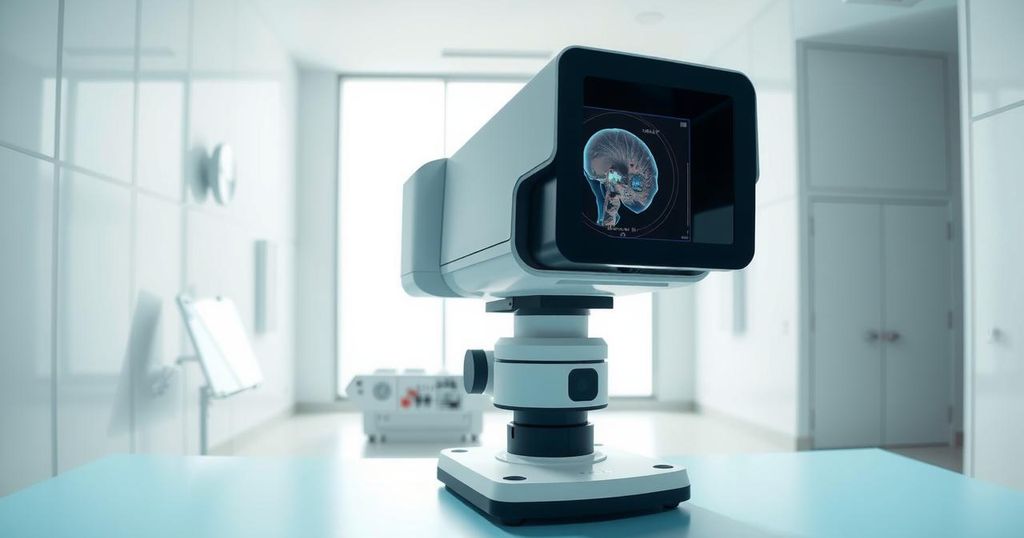The donation of a SPECT camera by the IAEA to a hospital in Niteroi, Brazil, has significantly increased heart diagnostic capacity, benefitting over two million people and improving access to essential healthcare services. This advancement has led to expedited scans and reduced waiting times, allowing more patients to receive critical nuclear medicine procedures.
A recent donation of a SPECT camera by the International Atomic Energy Agency (IAEA) has enabled a hospital in Niteroi, Brazil, to double its capacity for heart scans, ultimately benefiting over two million residents in the area. This advancement significantly enhances access to life-saving diagnostic services, vital amidst the prevalence of cardiovascular diseases, which are the leading global cause of mortality.
Cardiac diseases, including heart attacks, remain a significant health threat in Brazil. While lifestyle modifications serve as preventive measures, specialized diagnostic tests, particularly nuclear medicine procedures, play an essential role in early diagnosis, which is crucial for reducing mortality linked to heart failure.
The SPECT (single photon emission computed tomography) technique utilizes gamma rays to deliver three-dimensional insights regarding organ function. As noted by Enrique Estrada Lobato, a physician specializing in nuclear medicine at the IAEA, “In cardiology, SPECT tomography is standard to diagnose coronary artery disease and wall abnormalities.” This includes myocardial perfusion imaging (MPI), a stress test assessing blood flow in the heart muscle.
The Hospital Universitário Antônio Pedro (HUAP) in Niteroi functions as the sole public hospital featuring a nuclear medicine department. For years, however, the hospital relied on an antiquated 12-year-old single-headed gamma camera that resulted in prolonged waits for patient examinations. Claudio Tinoco Mesquita, Associate Professor of Radiology at Universidade Federal Fluminense and head of HUAP’s nuclear medicine division, stated, “The old equipment served us well, but it could not deal with the increasing needs for exams in our region.”
IAEA QUANUM audits conducted in 2013 and 2017 reviewed nuclear medicine initiatives and prompted recommendations for equipment upgrades. The Brazilian National Nuclear Energy Commission subsequently sought the IAEA’s assistance for new equipment, culminating in the installation of a dual-head gamma camera with IQ-SPECT capability at HUAP in August 2023.
Mesquita expressed their excitement, noting, “This donation changed everything. MPI scans that lasted over 20 minutes are now done in 6 to 7 minutes.” The result has been a considerable reduction in the waiting list, allowing an additional 1,000 patients access to necessary nuclear medicine procedures in just ten months.
Furthermore, the new equipment has enhanced training opportunities for nuclear medicine professionals and initiated a new residency program for medical physicists. Mesquita remarked, “This is a success story that connects the quest for quality and the fight to improve access to health services for poor people in Brazil.”
The IAEA continues to facilitate the effective use of nuclear and radiation medicine in diagnosing and treating noncommunicable diseases, including cardiovascular conditions, bolstering the implementation of quality management systems to ensure the safety and efficacy of nuclear medicine services.
In summary, the donation of a SPECT camera by the IAEA to the HUAP has greatly improved heart diagnostic capacity in Niteroi, Brazil. This enhancement has led to quicker scans, reduced waiting times, and access for thousands of additional patients. The initiative not only advances healthcare quality but also supports the training of medical professionals, underscoring the profound impact of international cooperation in public health.
Original Source: www.miragenews.com






